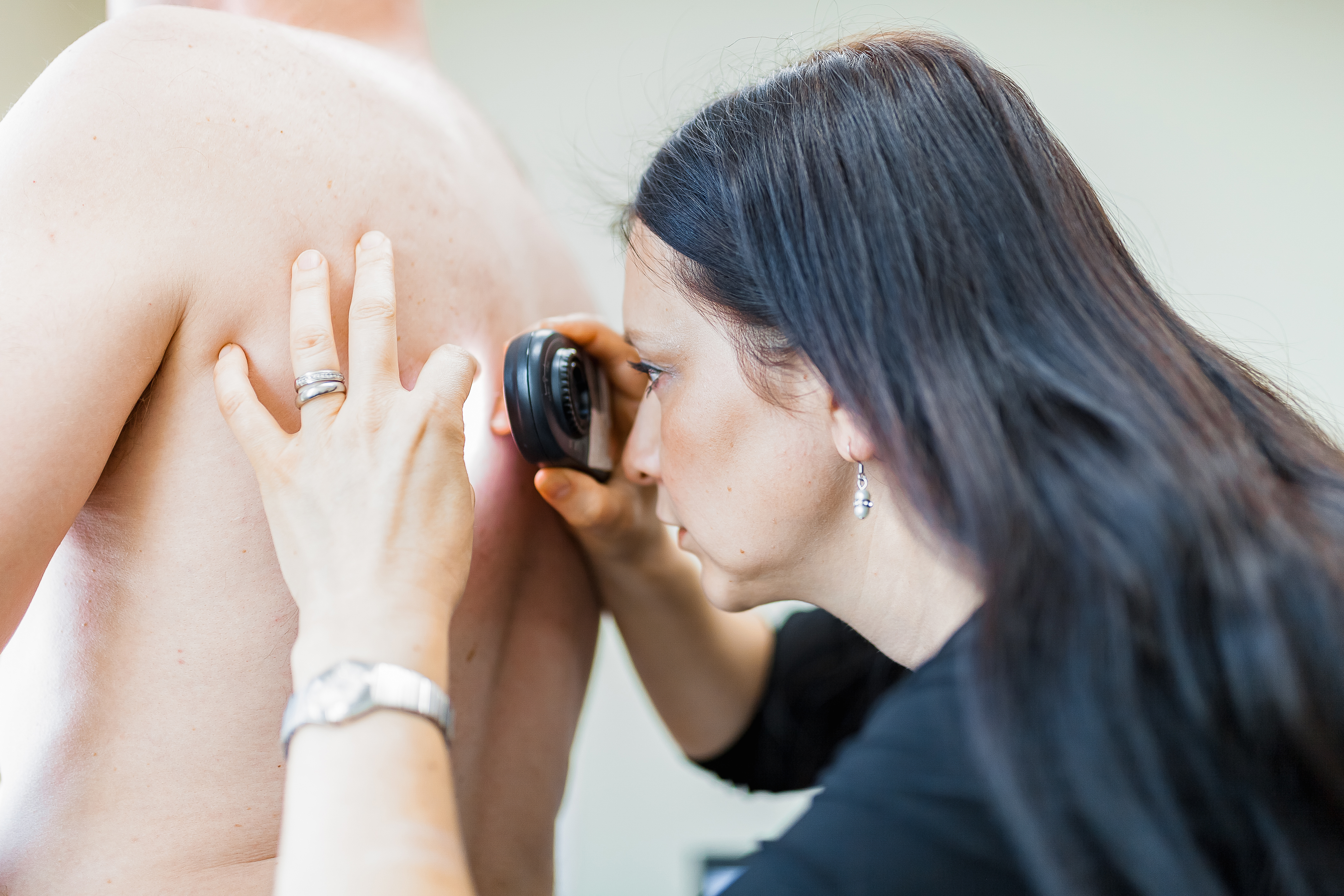Skin Cancer Causes and Risk Factors
The aim of this page is to provide you with accurate information about skin cancer, its various types and appearances. To better understand your risk, it’s helpful to explore some key skin cancer information and facts.
Skin cancer is most often caused by ultraviolet (UV) radiation damaging the DNA in skin cells, leading to abnormal cell growth. Main skin cancer causes include:
- Prolonged sun exposure, especially when it results in sunburn.
- Fair skin types, particularly those who burn easily and struggle to tan.
- Outdoor work, where sun exposure can be prolonged and intense.
- Sunbed use, especially before the age of 30, significantly increases risk.
Understanding the first signs of skin cancer — such as changes in a mole’s shape, size or colour, or a persistent non-healing lesion — is critical for early detection. If you notice any skin cancer symptoms, seek prompt medical advice.

Skin Cancer Types and Diagnosis
There are two main categories of skin cancer:
- Non-melanoma skin cancer: This includes Basal Cell Carcinoma and Squamous Cell Carcinoma, which are the most common and typically treatable forms.
- Melanoma: Less common, but potentially more serious. Early skin cancer diagnosis is vital to ensure the best outcomes.
Our skin cancer clinics in Sussex provides rapid access to expert diagnosis and reassurance. Our Consultant Dermatologists specialise in identifying all types of skin cancer and delivering effective treatments with care and precision.
If you’re searching for clear, reliable skin cancer information and facts, our team is here to help guide you through every step — from diagnosis to treatment and prevention.
How to Prevent Skin Cancer
If you have had previous skin cancer treatment in Sussex or are at higher risk due to sun exposure, skin type or occupation, it’s important to know how to prevent skin cancer. Staying out of the sun all year round is impractical and most often, not possible. Some suggestions on the best ways to protect your skin from overexposure to the sun are as follows:
Sun Protection Tips:
- Wear clothing that offers good protection from the sun.
- Wear a wide-brimmed hat to protect your face and neck.
- Use sunglasses to reduce UV exposure to your eyes.
- Apply broad-spectrum SPF 30+ sunscreen regularly, reapplying after swimming.
- Avoid sunburn.
- Avoid sunbeds and minimise time in direct sunlight, especially between 11am–3pm.
- Regularly inspect your skin and seek advice on any changes.
Private Skin Cancer Treatment in Sussex
At our skin cancer clinics in Sussex, we offer expert care and advanced diagnostics without delay. Whether you need monitoring, mole removal, or minor surgery, we provide safe, effective and discreet private skin cancer treatment in Sussex.
We pride ourselves on delivering high-quality care tailored to your individual needs, backed by experience and compassion. Book a consultation with a skin cancer specialist in Sussex today — early diagnosis can make all the difference.

